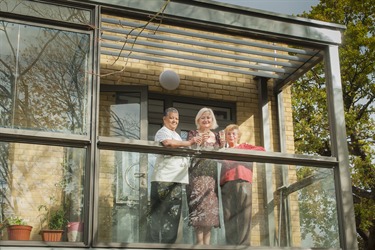Home /
News & Views /
News / Siobhain defends Bill for better standards in rented properties

This week Siobhain has shown her support to Karen Buck MP's Private Member's Bill, 'Homes (Fitness for Human Habitation)'. The Bill seeks to to amend the Landlord and Tenant Act 1985 to require that residential rented accommodation is provided and maintained in a state of fitness for human habitation.
You can find out more about the Bill on the
website of UK Parliament.
In support of the Bill, Siobhain says:
'This is an incredibly important and timely cause.
Housing is the number one issue that gets raised in my constituent surgeries, and the poor quality of rented accommodation is being mentioned increasingly. As more of my constituents have to rent privately, in the absence of social housing or affordable property to buy, they are coming up against difficult landlords and the bureaucratic processes of Environmental Health.
The example of just one of my constituents is an important case in point. My constituent first made contact almost two years ago now, reporting a broken boiler, excessive damp in her bedroom, rodents, a broken boiler and holes in the roof. For two years, she has had to plead with a largely unwilling landlord to make her home suitably habitable for her and her two children. Failing this, she has had to deal with Environmental Health, whose response was slow, and has been hampered by their bureaucratic organisation and their limited remit.
And this is not a story about a student living in poor but cheap accommodation: my constituent has two children and is worried about making her home habitable for them. Indeed, the impact of poor housing conditions upon children is huge, closely related not just to a heightened risk of accident, but also the increased potential of ill health in later life, especially asthma, and generally lower educational attainment.
My constituent’s ongoing problems are reflective of poor accommodation across the rented sector. According to a forthcoming Shelter report, a third of privately rented homes have damp and mould, one in five private tenants suffer from excessive cold in their properties, and one in ten have electrical hazards that pose a significant risk of accident. In fact, a staggering 50% of tenants surveyed said that they had experienced problems with their housing conditions or disrepair in the past year. And as the number of private tenants mushrooms, so will the problems regarding how habitable these properties are. Indeed, in
1999 just 10% of people rented privately. Today that figure is 17%, and by 2032 the private rented sector is expected to account for more than a third of the UK’s housing stock.
We have got housing into a quite extraordinary situation where vulnerable and poorer tenants may face eviction for contacting Environmental Health regarding largely properties unfit for purpose. However, as demand for housing grows beyond control, tenants lack basic consumer power to bargain for better conditions or move to more habitable accommodation, while landlords have few incentives to invest in their own properties.
The Bill being debated today will make a vital contribution to this pressing issue. By modernising the definition of what constitutes ‘unfit’ accommodation, tenants can be given greater protection by the law. Meanwhile, landlords can be held to account against a basic minimum standard of what constitutes habitable accommodation. Furthermore, by bypassing the current dependence on a local authority serving a notice on an unfit property, tenants will also have more options to pursue.
In sum, I am confident that this Bill will give private rented tenants access to a higher basic, minimum quality of accommodation, as defined by the law, and more effective mechanisms to hold their landlords to account.'